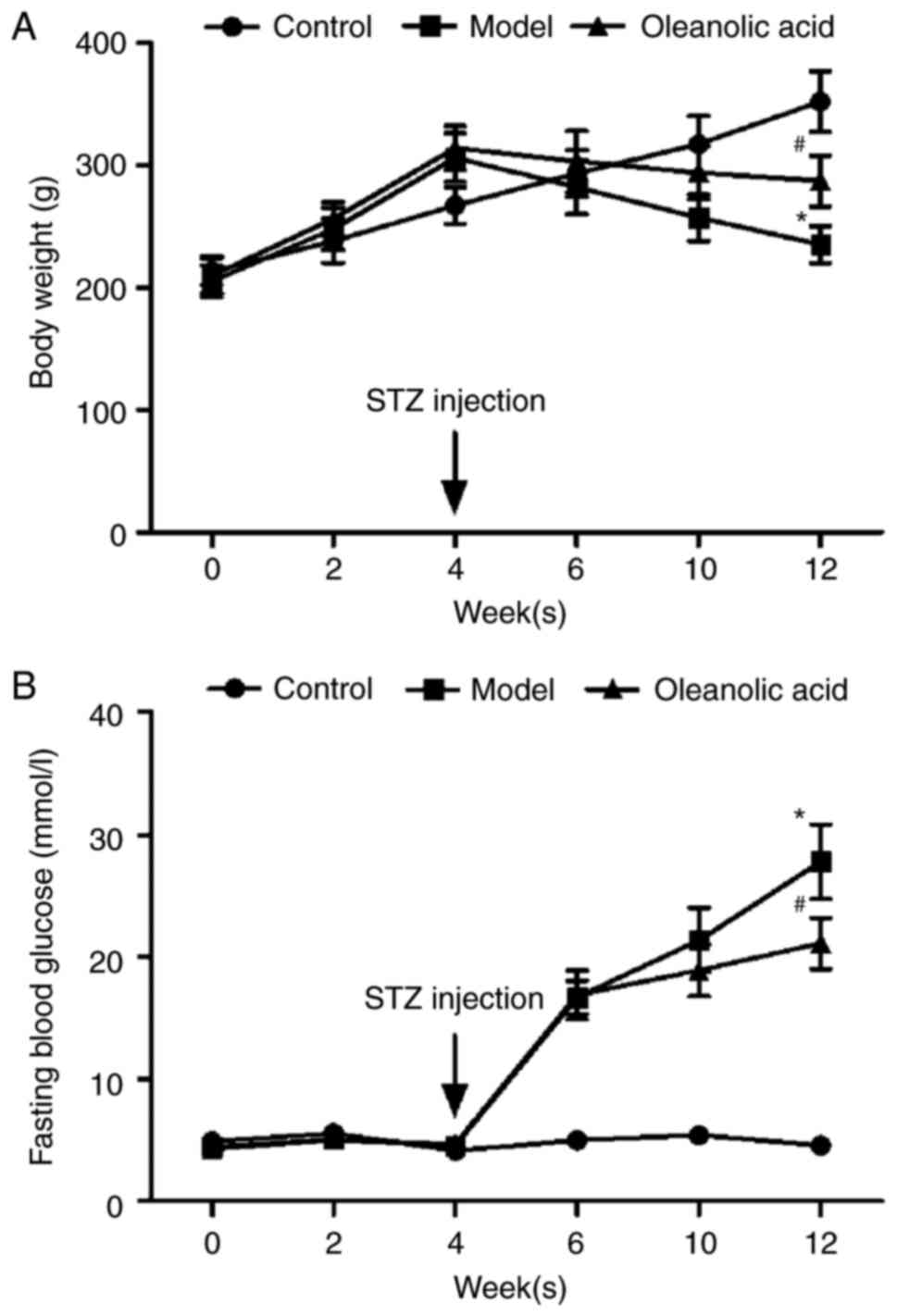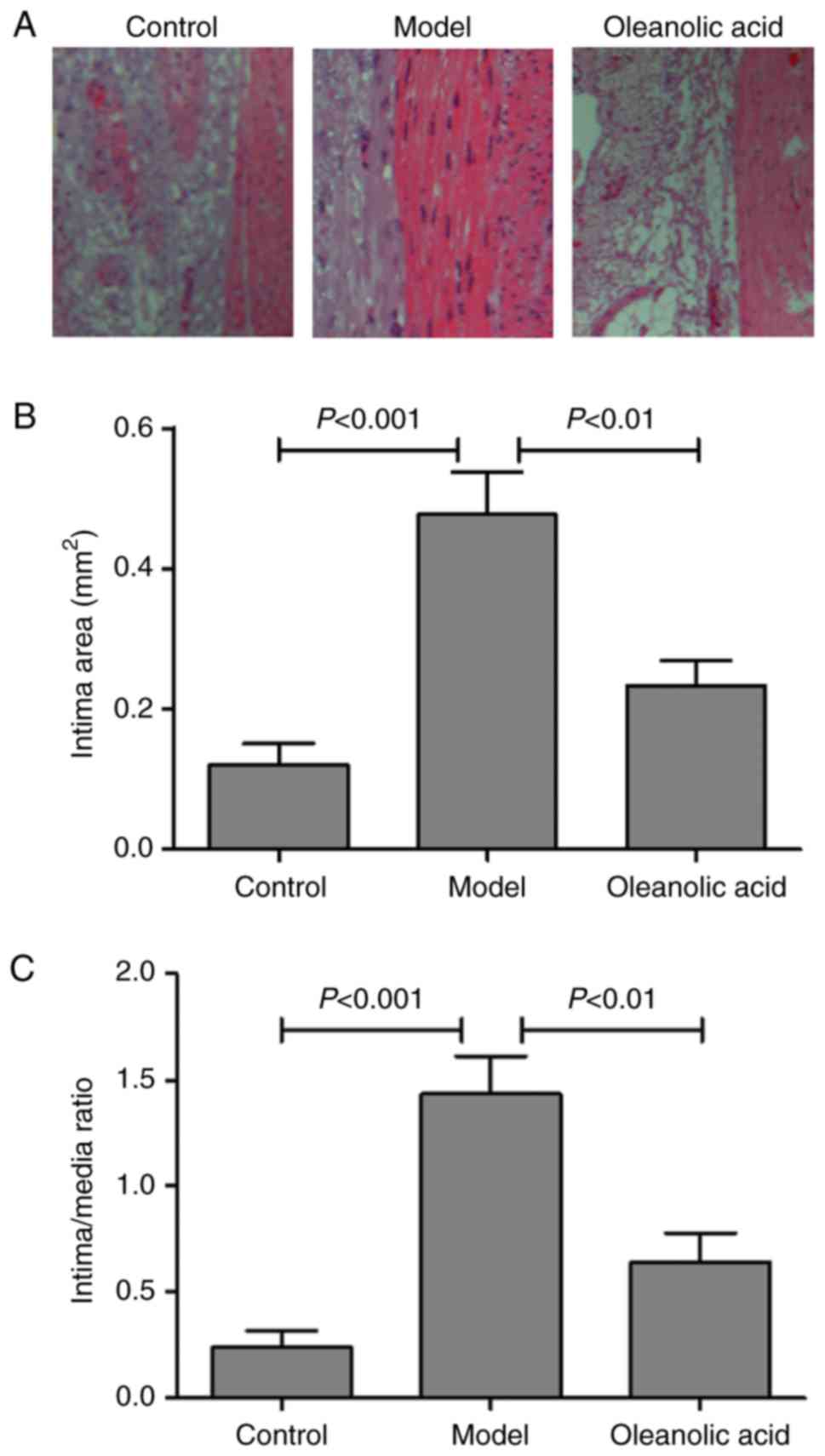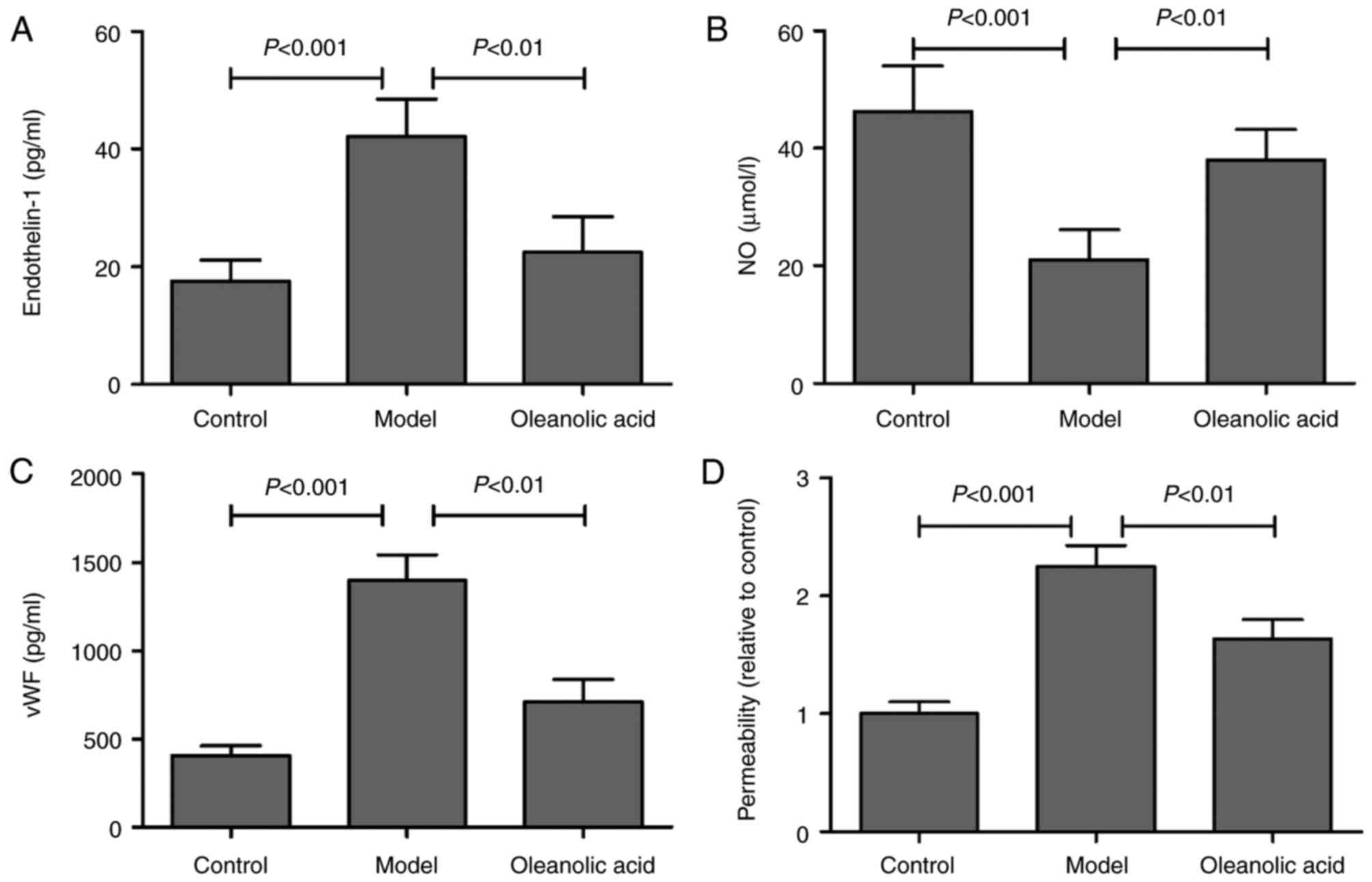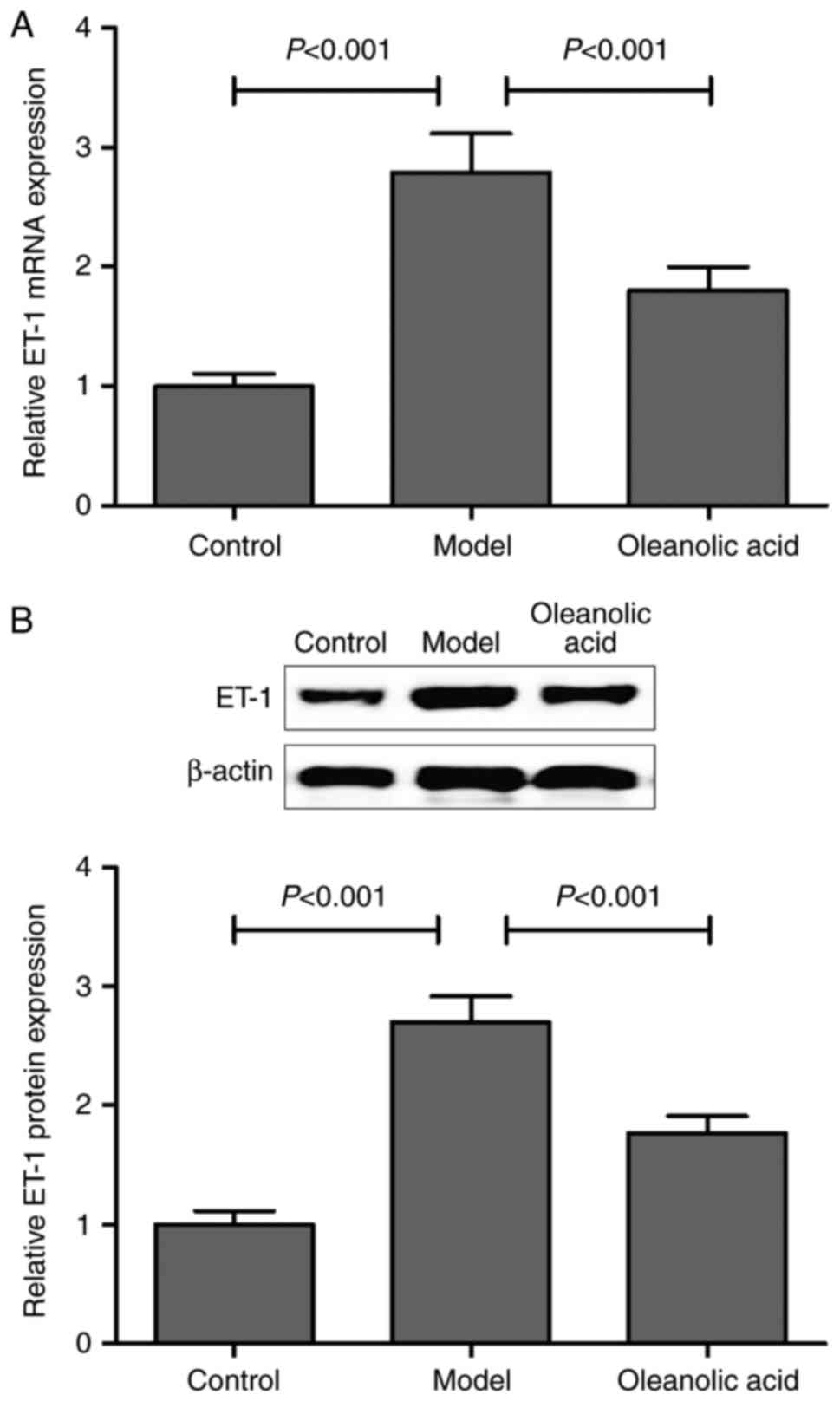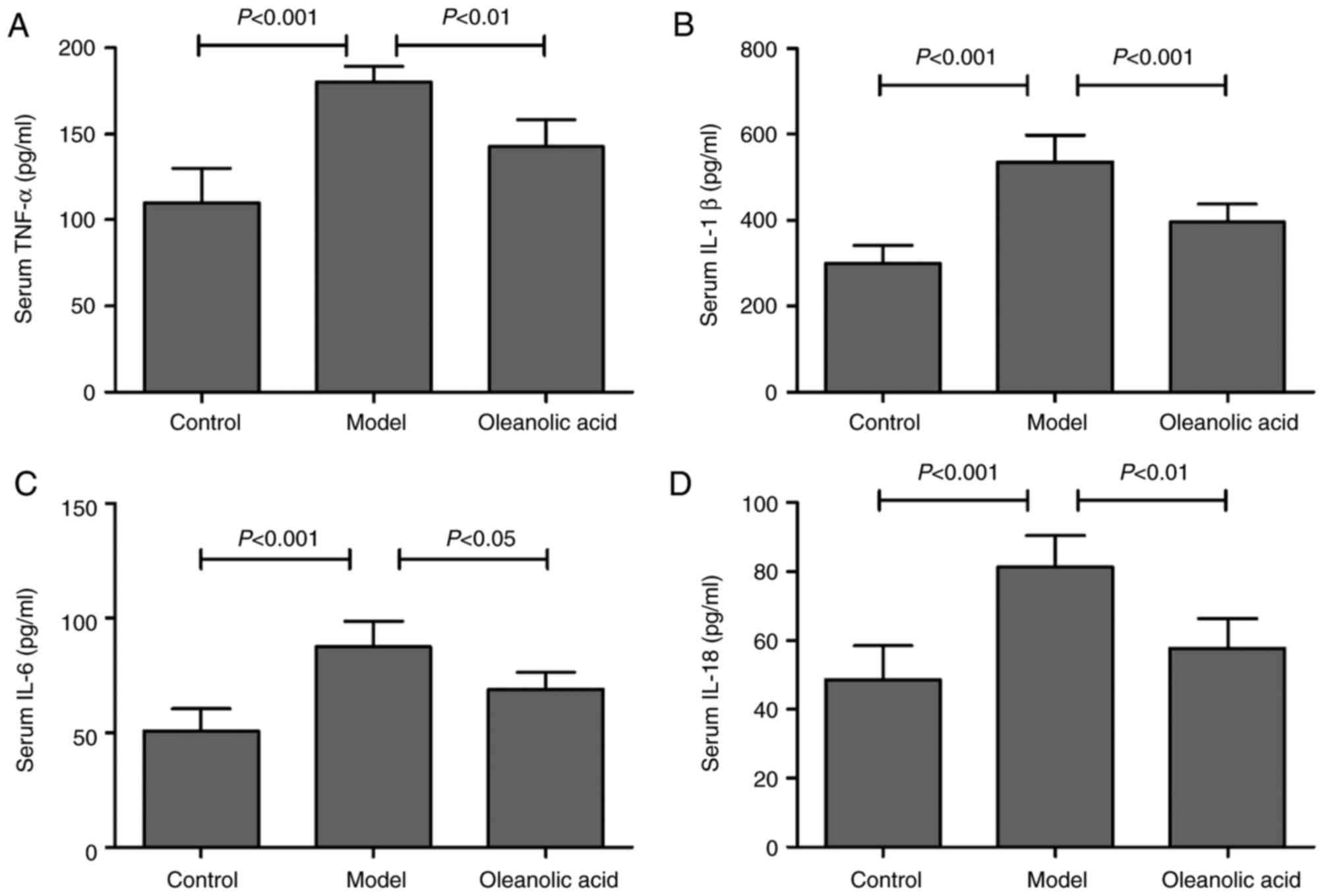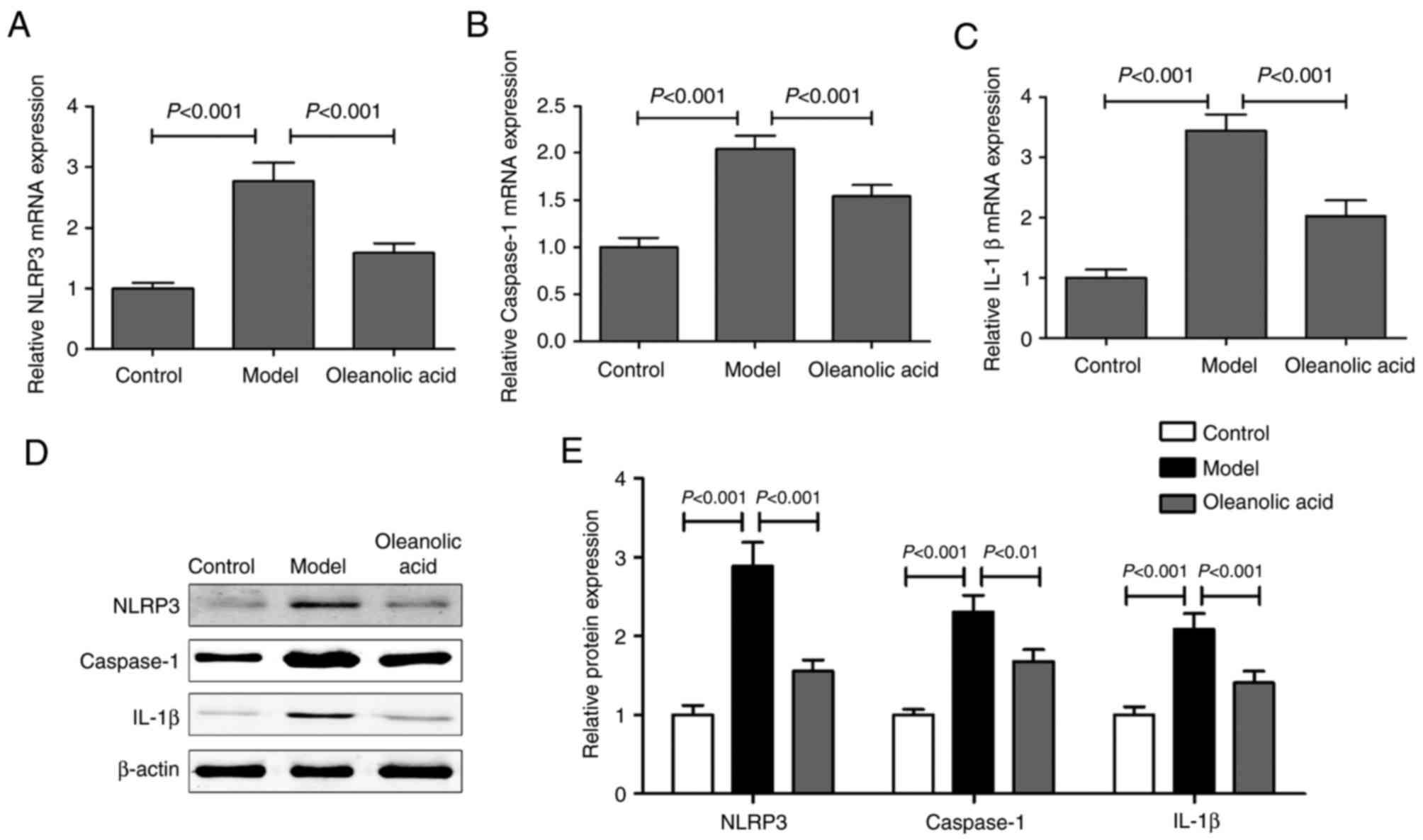|
1
|
Irie Y, Katakami N, Kaneto H, Kasami R,
Sumitsuji S, Yamasaki K, Tachibana K, Kuroda T, Sakamoto K,
Umayahara Y, et al: Maximum carotid intima-media thickness improves
the prediction ability of coronary artery stenosis in type 2
diabetic patients without history of coronary artery disease.
Atherosclerosis. 221:438–444. 2012. View Article : Google Scholar : PubMed/NCBI
|
|
2
|
Tian F, Chen Y, Liu H, Zhang T, Guo J and
Jin Q: Assessment of characteristics of neointimal hyperplasia
after drug-eluting stent implantation in patients with diabetes
mellitus: An optical coherence tomography analysis. Cardiology.
128:34–40. 2014. View Article : Google Scholar : PubMed/NCBI
|
|
3
|
Yang J, Fan Z, Yang J, Ding J, Yang C and
Chen L: MicroRNA-24 attenuates neointimal hyperplasia in the
diabetic rat carotid artery injury model by inhibiting Wnt4
signaling pathway. Int J Mol Sci. 17:E7652016. View Article : Google Scholar : PubMed/NCBI
|
|
4
|
Wang K, Zhou Z, Zhang M, Fan L, Forudi F,
Zhou X, Qu W, Lincoff AM, Schmidt AM, Topol EJ and Penn MS:
Peroxisome proliferator-activated receptor gamma down-regulates
receptor for advanced glycation end products and inhibits smooth
muscle cell proliferation in a diabetic and nondiabetic rat carotid
artery injury model. J Pharmacol Exp Ther. 317:37–43. 2006.
View Article : Google Scholar : PubMed/NCBI
|
|
5
|
Simon DI: Inflammation and vascular
injury: Basic discovery to drug development. Circ J. 76:1811–1818.
2012. View Article : Google Scholar : PubMed/NCBI
|
|
6
|
Sirico G, Spadera L, De Laurentis M and
Brevetti G: Carotid artery disease and stroke in patients with
peripheral arterial disease. The role of inflammation. Monaldi Arch
Chest Dis. 72:10–17. 2009.PubMed/NCBI
|
|
7
|
Xia M, Boini KM, Abais JM, Xu M, Zhang Y
and Li PL: Endothelial NLRP3 inflammasome activation and enhanced
neointima formation in mice by adipokine visfatin. Am J Pathol.
184:1617–1628. 2014. View Article : Google Scholar : PubMed/NCBI
|
|
8
|
Shi X, Xie WL, Kong WW, Chen D and Qu P:
Expression of the NLRP3 Inflammasome in Carotid Atherosclerosis. J
Stroke Cerebrovasc Dis. 24:2455–2466. 2015. View Article : Google Scholar : PubMed/NCBI
|
|
9
|
Zheng F, Xing S, Gong Z and Xing Q: NLRP3
inflammasomes show high expression in aorta of patients with
atherosclerosis. Heart Lung Circ. 22:746–750. 2013. View Article : Google Scholar : PubMed/NCBI
|
|
10
|
Goyal SN, Mahajan UB, Chandrayan G,
Kumawat VS, Kamble S, Patil P, Agrawal YO, Patil CR and Ojha S:
Protective effect of oleanolic acid on oxidative injury and
cellular abnormalities in doxorubicin induced cardiac toxicity in
rats. Am J Transl Res. 8:60–69. 2016.PubMed/NCBI
|
|
11
|
Madlala HP, Van Heerden FR, Mubagwa K and
Musabayane CT: Changes in renal function and oxidative status
associated with the hypotensive effects of oleanolic acid and
related synthetic derivatives in experimental animals. PLoS One.
10:e01281922015. View Article : Google Scholar : PubMed/NCBI
|
|
12
|
Yu Z, Sun W, Peng W, Yu R, Li G and Jiang
T: Pharmacokinetics in vitro and in vivo of two novel prodrugs of
oleanolic acid in rats and its hepatoprotective effects against
liver injury induced by CCl4. Mol Pharm. 13:1699–1710. 2016.
View Article : Google Scholar : PubMed/NCBI
|
|
13
|
Liese J, Abhari BA and Fulda S: Smac
mimetic and oleanolic acid synergize to induce cell death in human
hepatocellular carcinoma cells. Cancer Lett. 365:47–56. 2015.
View Article : Google Scholar : PubMed/NCBI
|
|
14
|
Wang X, Chen Y, Abdelkader D and Hassan W:
Combination therapy with oleanolic acid and metformin as a
synergistic treatment for diabetes. J Diabetes Res.
2015:9732872015. View Article : Google Scholar : PubMed/NCBI
|
|
15
|
Camer D, Yu Y, Szabo A and Huang XF: The
molecular mechanisms underpinning the therapeutic properties of
oleanolic acid, its isomer and derivatives for type 2 diabetes and
associated complications. Mol Nutr Food Res. 58:1750–1759. 2014.
View Article : Google Scholar : PubMed/NCBI
|
|
16
|
Lu J, Wu DM, Zheng YL, Hu B, Cheng W,
Zhang ZF and Shan Q: Ursolic acid improves high fat diet-induced
cognitive impairments by blocking endoplasmic reticulum stress and
IkappaB kinase beta/nuclear factor-κB-mediated inflammatory
pathways in mice. Brain Behav Immun. 25:1658–1667. 2011. View Article : Google Scholar : PubMed/NCBI
|
|
17
|
Buus NH, Hansson NC, Rodriguez-Rodriguez
R, Stankevicius E, Andersen MR and Simonsen U: Antiatherogenic
effects of oleanolic acid in apolipoprotein E knockout mice. Eur J
Pharmacol. 670:519–526. 2011. View Article : Google Scholar : PubMed/NCBI
|
|
18
|
Zheng Z, Chen H, Wang H, Ke B, Zheng B, Li
Q, Li P, Su L, Gu Q and Xu X: Improvement of retinal vascular
injury in diabetic rats by statins is associated with the
inhibition of mitochondrial reactive oxygen species pathway
mediated by peroxisome proliferator-activated receptor gamma
coactivator 1alpha. Diabetes. 59:2315–2325. 2010. View Article : Google Scholar : PubMed/NCBI
|
|
19
|
Chai J, He Y, Cai SY, Jiang Z, Wang H, Li
Q, Chen L, Peng Z, He X, Wu X, et al: Elevated hepatic multidrug
resistance-associated protein 3/ATP-binding cassette subfamily C 3
expression in human obstructive cholestasis is mediated through
tumor necrosis factor alpha and c-Jun NH2-terminal
kinase/stress-activated protein kinase-signaling pathway.
Hepatology. 55:1485–1494. 2012. View Article : Google Scholar : PubMed/NCBI
|
|
20
|
Dushpanova A, Agostini S, Ciofini E,
Cabiati M, Casieri V, Matteucci M, Del Ry S, Clerico A, Berti S and
Lionetti V: Gene silencing of endothelial von Willebrand factor
attenuates angiotensin II-induced endothelin-1 expression in
porcine aortic endothelial cells. Sci Rep. 6:300482016. View Article : Google Scholar : PubMed/NCBI
|
|
21
|
Tousoulis D, Kampoli AM, Tentolouris C,
Papageorgiou N and Stefanadis C: The role of nitric oxide on
endothelial function. Curr Vasc Pharmacol. 10:4–18. 2012.
View Article : Google Scholar : PubMed/NCBI
|
|
22
|
Wong BW, Wong D, Luo H and McManus BM:
Vascular endothelial growth factor-D is overexpressed in human
cardiac allograft vasculopathy and diabetic atherosclerosis and
induces endothelial permeability to low-density lipoproteins in
vitro. J Heart Lung Transplant. 30:955–962. 2011.PubMed/NCBI
|
|
23
|
Satoh M, Tabuchi T, Itoh T and Nakamura M:
NLRP3 inflammasome activation in coronary artery disease: Results
from prospective and randomized study of treatment with
atorvastatin or rosuvastatin. Clin Sci (Lond). 126:233–241. 2014.
View Article : Google Scholar : PubMed/NCBI
|
|
24
|
Saita D, Ferrarese R, Foglieni C, Esposito
A, Canu T, Perani L, Ceresola ER, Visconti L, Burioni R, Clementi M
and Canducci F: Adaptive immunity against gut microbiota enhances
apoE-mediated immune regulation and reduces atherosclerosis and
western-diet-related inflammation. Sci Rep. 6:293532016. View Article : Google Scholar : PubMed/NCBI
|
|
25
|
Chow BS, Koulis C, Krishnaswamy P,
Steckelings UM, Unger T, Cooper ME, Jandeleit-Dahm KA and Allen TJ:
The angiotensin II type 2 receptor agonist compound 21 is
protective in experimental diabetes-associated atherosclerosis.
Diabetologia. 59:1778–1790. 2016. View Article : Google Scholar : PubMed/NCBI
|
|
26
|
Kirii H, Niwa T, Yamada Y, Wada H, Saito
K, Iwakura Y, Asano M, Moriwaki H and Seishima M: Lack of
interleukin-1beta decreases the severity of atherosclerosis in
ApoE-deficient mice. Arterioscler Thromb Vasc Biol. 23:656–660.
2003. View Article : Google Scholar : PubMed/NCBI
|
|
27
|
Mallat Z, Corbaz A, Scoazec A, Graber P,
Alouani S, Esposito B, Humbert Y, Chvatchko Y and Tedgui A:
Interleukin-18/interleukin-18 binding protein signaling modulates
atherosclerotic lesion development and stability. Circ Res.
89:E41–E45. 2001. View Article : Google Scholar : PubMed/NCBI
|
|
28
|
Gage J, Hasu M, Thabet M and Whitman SC:
Caspase-1 deficiency decreases atherosclerosis in apolipoprotein
E-null mice. Can J Cardiol. 28:222–229. 2012. View Article : Google Scholar : PubMed/NCBI
|
|
29
|
Gao D, Li Q, Li Y, Liu Z, Fan Y, Liu Z,
Zhao H, Li J and Han Z: Antidiabetic and antioxidant effects of
oleanolic acid from Ligustrum lucidum Ait in alloxan-induced
diabetic rats. Phytother Res. 23:1257–1262. 2009. View Article : Google Scholar : PubMed/NCBI
|
|
30
|
Osborn O and Olefsky JM: The cellular and
signaling networks linking the immune system and metabolism in
disease. Nat Med. 18:363–374. 2012. View
Article : Google Scholar : PubMed/NCBI
|















